Among them, some contents that receive great attention from public opinion such as management of extra teaching and learning; organization of teaching 2 sessions/day; High School Graduation Exam; policies for teachers; digital transformation... all require drastic implementation.
Policy breakthrough for teachers
Minister of Education and Training Nguyen Kim Son said that immediately after the National Assembly passed the Law on Teachers, the Ministry of Education and Training proactively developed a system of documents guiding its implementation. In particular, regarding the recruitment of teachers, the Ministry is developing a Circular with the direction of assigning the Department of Education and Training to preside over implementation, or advising the Provincial People's Committee to decentralize and authorize in accordance with local realities.
The above approach ensures the implementation of the policy of reducing intermediaries, synchronizing recruitment quality (one-time recruitment can be registered for admission to many schools based on exam/examination results), saving costs, increasing opportunities for recruitment participants; at the same time, contributing to overcoming the situation of local surplus/shortage of teachers as well as ensuring the structure of the team according to grade level, subject, and educational activities.
In addition, the Ministry of Education and Training is drafting a Decree detailing a number of articles of the Law on Teachers, including regulations on the content and form of teacher recruitment. As expected, the recruitment will include two rounds of exams, compatible with current regulations on civil servant recruitment.
However, round 2 - in terms of expertise and profession will be designed differently, closely following the actual process of teaching and education activities, ensuring the correct assessment of pedagogical capacity and professional skills of candidates at each level of education and training. This is expected to be an important innovation, aiming to overcome previous limitations when applying the general mechanism of civil servants without taking into account the specific characteristics of the teaching profession.
Currently, the Ministry of Education and Training has also completed a draft of detailed regulations on salaries, allowances and policies to attract and support teachers. Accordingly, it is expected that the basic salary of all teachers will increase, by at least 2 million VND, and at most up to 5-7 million VND/person/month. This increase is only calculated on the basic salary, not including other allowances.
Regarding the issue of overcoming the shortage of teachers, the Minister reiterated the number of 65,980 positions in the education sector that the Politburo added in the period of 2022 - 2026. In the two school years of 2022 - 2023 and 2023 - 2024, the country recruited more than 40,000 teachers. However, due to the continuous increase in the number of students and classes, the demand for teachers has also increased sharply (the 2023 - 2024 school year needs 13,676 more teachers; the 2024 - 2025 school year needs about 22,000 more teachers). Therefore, many localities still lack teachers.
The main reason, according to the Minister, is due to limited recruitment sources. In some subjects such as Information Technology, Foreign Languages, and Arts, it is difficult to recruit students for the teaching profession because teachers' income is still low. In addition, the process of allocating and recruiting staff in many localities is still slow and prolonged.
Faced with this situation, the Ministry of Education and Training has been implementing many solutions such as: Directing training institutions to open major codes, train teachers according to the actual needs of localities, especially specific subjects; requiring localities to recruit enough assigned staff; directing localities to review and arrange the school network; piloting the autonomy mechanism in some public preschools and general education facilities; promoting socialization...
Along with solutions from the Central Government, the Ministry recommends that localities proactively recruit enough assigned staff, have policies to attract and support teachers, and arrange funding to implement teacher contracts according to regulations.
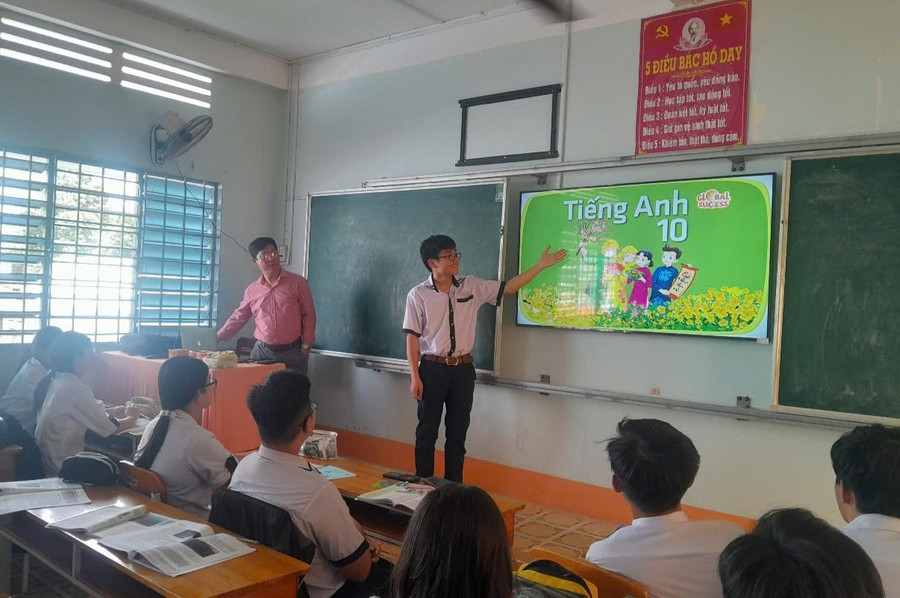
Implement methodical and sustainable teaching of 2 sessions/day
One of the priorities that the Government and the Education sector have recently emphasized is organizing 2-session teaching/day to improve quality. Regarding this content, Minister Nguyen Kim Son shared: Implementing Directive No. 17/CT-TTg dated June 6, 2025 of the Prime Minister on 2-session teaching/day, the Ministry of Education and Training has directed schools to develop education plans that clearly demonstrate the plan to mobilize and use resources to implement in qualified places.
The plan must specify the content, duration, and target students, and assign teachers appropriately and in accordance with regulations; focus on differentiating subjects, nurturing excellent students, reviewing for final year students, and supporting students who have not met the requirements according to Circular No. 29/2024/TT-BGDDT, dated December 30, 2024 of the Ministry of Education and Training, regulating extra teaching and learning.
At the same time, the Ministry emphasized the need to innovate management work, strengthen inspection and supervision of the implementation of the General Education Program as well as the management of extra teaching and learning, and ensure strict implementation of policies and laws.
The organization of the second session, including extra classes for 3 subjects as prescribed, is carried out in accordance with Directive No. 17/CT-TTg dated June 6, 2025 of the Prime Minister on organizing 2 sessions/day and organizing summer activities for children and students.
The funding for the second session is mainly guaranteed from the State budget under the direction of the Prime Minister. Socialized sources are implemented according to current regulations. In the coming time, the Ministry of Education and Training will coordinate with the Ministry of Finance and localities to develop specific mechanisms and policies on mobilizing funds for the implementation of teaching 2 sessions/day.
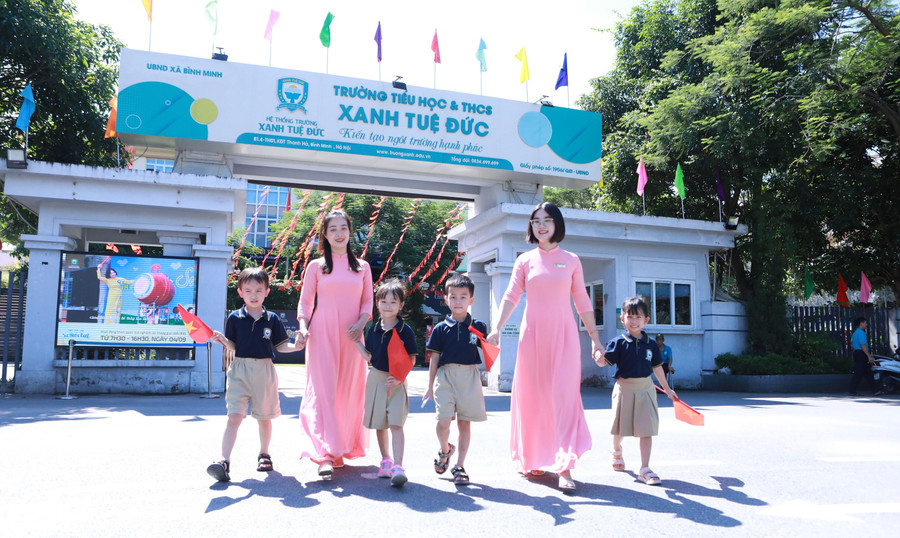
Prepare conditions for organizing high school graduation exams on computers
The High School Graduation Exam is always a matter of great concern to the whole society. According to the Minister, the organization of the High School Graduation Exam to consider graduation recognition currently has specific goals.
Firstly, assess the learners' level according to the requirements for developing qualities and capacities of the General Education Program, and use exam results to consider recognition of high school graduation.
Second, the results of the Exam are used as one of the bases to evaluate the teaching quality of general education institutions and the direction of educational management agencies. Third, it provides reliable data for universities and vocational education institutions to use in enrollment.
At present, this is the only national exam for all students to assess the general output of high school, with a common assessment scale nationwide. Therefore, it is necessary to maintain the organization to assess the level of general education standards, providing national data for research, construction and adjustment of general education policies.
At the same time, the quality of education in regions across the country is assessed. The exam results are the output of high school, a source of reference information for universities and vocational training institutions to organize enrollment.
Implementing the Prime Minister's direction on preparing for the pilot high school graduation exam on computers from 2027, the Minister said that the Ministry of Education and Training is focusing on implementing a number of key tasks, such as:
Develop a project to organize the High School Graduation Exam on computers, submit it to the Prime Minister for approval in 2026; mobilize experts to build a standardized exam question bank (expected to be applied from 2027); and develop procedures and regulations for organizing exams on computers, organize training and seminars nationwide; continue to coordinate with the Government Cipher Committee in transferring and receiving exam questions and other related security steps of the Exam.
“The Ministry of Education and Training is preparing software systems to organize computer-based exams and testing computer-based exams in localities. It is expected that this school year, the testing will be implemented for more than 100,000 students,” the Minister informed.
Digital transformation and science and technology: Key drivers of education
Resolution No. 57-NQ/TW of the Politburo has identified science and technology, innovation and digital transformation as important driving forces for national development, in which training high-quality human resources plays a key role. Fully aware of this requirement, the Minister affirmed that the Ministry of Education and Training has implemented many solutions to prepare human resources for the new period.
Firstly , in general education, the new program aims to develop comprehensive competencies, especially digital competencies, critical thinking, creativity and problem solving. In higher education, the Ministry focuses on expanding training in key fields such as artificial intelligence, data science, semiconductor technology, biotechnology, new energy, and cybersecurity; at the same time, promoting research and innovation in schools; upgrading national universities, regional universities and key facilities according to regional and international standards.
The Ministry of Education and Training has also been implementing many major projects on high-tech human resource development such as the STEM human resource project for the period 2025 - 2035; Semiconductor industry human resource development program; Nuclear power training project; Project on 4.0 technology excellence centers and AI training centers at many universities.
Second, to promote the “3 House” cooperation model (State - School - Enterprise), the Ministry of Education and Training has advised and issued many mechanisms and policies to encourage training institutions to cooperate with enterprises in program development, organizing internships and practices, and developing research and innovation centers right in schools. This helps create a closed value chain, contributing to the supply of high-quality human resources for industrialization, modernization and national digital transformation.
Third, the Ministry of Education and Training focuses on developing a team of lecturers and scientists through training and improving their qualifications; encouraging research and international publications; expanding international cooperation; and at the same time, having policies to attract Vietnamese intellectuals abroad to participate in teaching and research.
In the coming time, the Ministry of Education and Training will continue to standardize, modernize and internationalize training programs; build a national human resources database associated with demand forecasting; and expand international cooperation to make Vietnam a high-tech human resources center of the region.
The Minister emphasized the need to improve digital capacity for teachers and students and affirmed its special importance in the current context of digital transformation. To promote this, the Ministry of Education and Training has issued a Digital Competency Framework for Learners with 6 core competency groups. In particular, the Ministry is preparing to issue a Strategy for Artificial Intelligence (AI) Transformation in Education.
The strategy aims to apply AI in a comprehensive and responsible manner, towards a modern, flexible and equitable digital education. The Ministry will also implement a project to foster digital and AI capacity for teachers, and at the same time research and update AI content in the General Education Program.
“At the same time, implementing Resolution No. 57-NQ/TW, the education sector is building a national database, developing a management platform, promoting online teaching and testing, and promoting the AI ecosystem in education. This will be an important practical environment to help teachers and students develop digital capacity in a practical and effective way,” said the Minister.
Building schools on the border: A profound political and humane task
Implementing the Conclusion of the General Secretary, the Politburo and the direction of the Prime Minister on building schools for border communes, the Ministry of Education and Training has been urgently implementing a series of important tasks.
Specifically, the Minister said that the Ministry of Education and Training has asked localities to prepare the site, land fund, select construction locations; determine technical standards and scale according to level 2 - the highest level of general school facilities. At the same time, coordinate with relevant ministries and branches to review and select 100 typical schools, deploy immediately in 2025, strive to complete before June 30, 2026.
These schools are planned synchronously and modernly, with an average area of 5 - 10 hectares, a scale of about 30 classes, equivalent to about 1,000 students per school; ensuring full connection to infrastructure of electricity, water, traffic, telecommunications, drainage system, ensuring absolute safety. The facilities of the schools will be designed synchronously with full functional areas.
In difficult and special areas, the construction land area can be less than 5 hectares, the number of students is less than 1,000, but still must meet the minimum standards. On the contrary, in densely populated areas, the scale can be larger than 30 classes, over 1,000 students.
In the coming time, the Ministry will establish a special interdisciplinary working group headed by the Minister of Education and Training to inspect and remove obstacles in the implementation of this task; coordinate with the Ministry of Construction to issue school design models before September 15, 2025 for localities to apply; coordinate with the Ministry of Finance and relevant agencies to monitor progress, ensure quality, efficiency, and compliance with regulations. The Ministry also plans to coordinate with the Central Committee of the Vietnam Fatherland Front and localities to launch a campaign to build schools for border communes this coming October.
Regarding the management of extra teaching and learning, the Ministry of Education and Training continues to maintain the viewpoint that "extra learning can bring about the consolidation of knowledge, but brings little value to human development".
The profound consequences of the widespread situation of extra teaching and learning require drastic correction. Therefore, in the 2025-2026 school year, the Ministry of Education and Training will continue to direct and urge localities to issue regulations on managing extra teaching and learning to enhance the responsibility of the government, while requiring educational institutions to effectively implement the General Education Program. - Minister Nguyen Kim Son
Source: https://giaoducthoidai.vn/tu-chinh-sach-den-hanh-dong-xay-dung-giao-duc-hien-dai-cong-bang-va-sang-tao-post747108.html










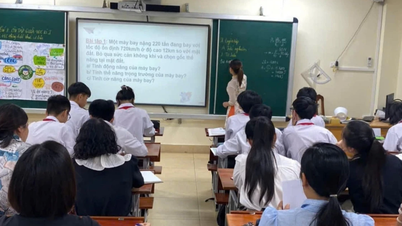
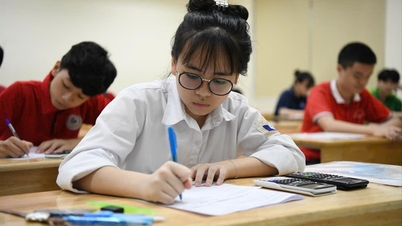
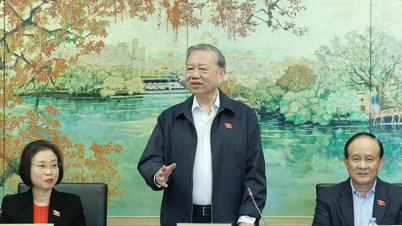



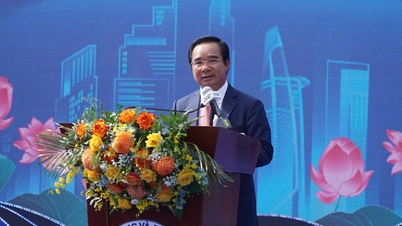






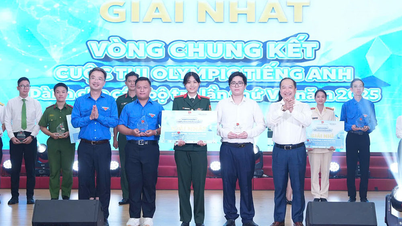








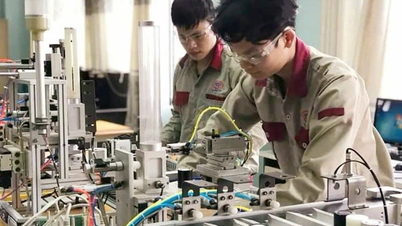

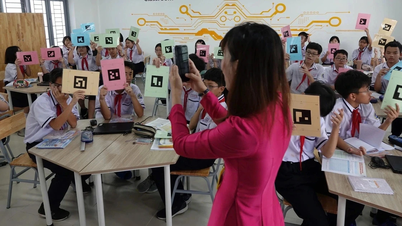

![[Photo] National Assembly Chairman Tran Thanh Man attends the VinFuture 2025 Award Ceremony](/_next/image?url=https%3A%2F%2Fvphoto.vietnam.vn%2Fthumb%2F1200x675%2Fvietnam%2Fresource%2FIMAGE%2F2025%2F12%2F05%2F1764951162416_2628509768338816493-6995-jpg.webp&w=3840&q=75)
































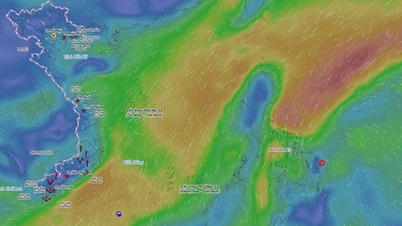















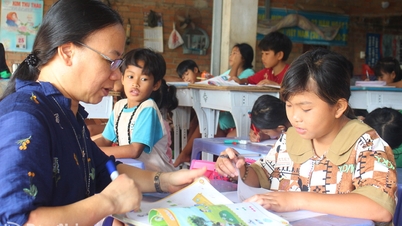




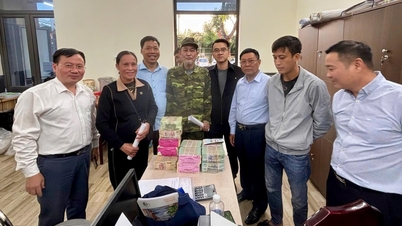

















Comment (0)